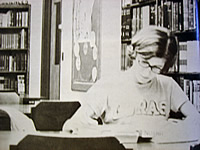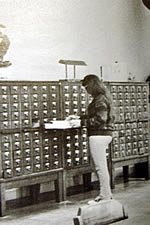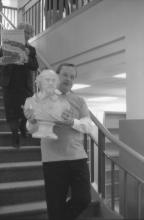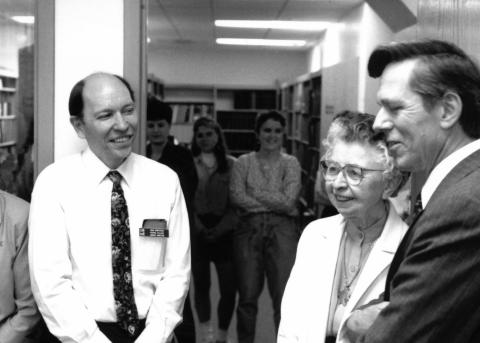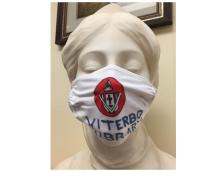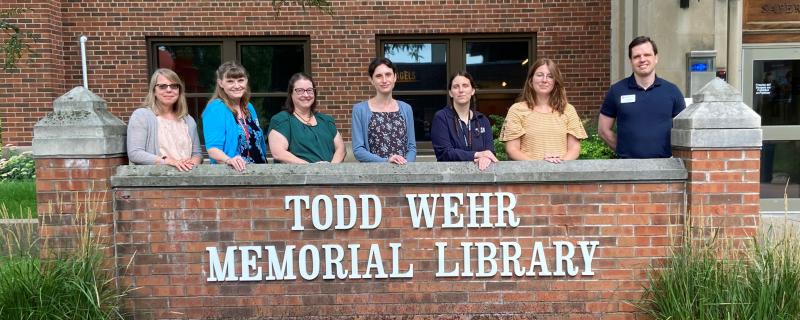Who was Todd Wehr?
C. Frederick "Todd" Wehr (1889-1965), industrialist and philanthropist, was co-founder of the Wehr Steel Company and founder of the Todd Wehr Foundation, Inc. Wehr was a graduate of West Division High School in Milwaukee, Wisconsin, and of Cornell University in Ithaca, New York. He and his brothers comprised the executive team of the Wehr Steel Company, which was founded in 1910 by his father, Henry Wehr. The company manufactured steel alloy castings for machine parts, as well as magnetic separators and brakes. During World War II it received numerous "E" awards from the government for excellence in steel production. In 1958 the company was reorganized as a division of the Wehr Corporation. Wehr became the chairman of the board, a position he held until his retirement in 1963.
Wehr left the bulk of his estate to a trust set up for charitable religious, scientific, and educational purposes. Many Wisconsin universities and cultural organizations have benefited from the Todd Wehr Foundation, including Viterbo University, which received a grant to renovate the facility that now bears the name Todd Wehr Memorial Library.
St. Rose Library
In 1941 the St. Rose Library used by Viterbo was moved from the third floor of St. Rose Convent to what became Viterbo College Library on the third floor of Murphy Center. To execute this Herculean task, Sister Mary Catherine Walljasper, the Head Librarian at that time, organized a human chain of three hundred to pass the books hand to hand to their destination. The chain was made up of Sisters from St. Rose and students and teachers from Aquinas High School and the city parochial schools. It extended for two blocks from the St. Rose third floor library on Market Street, through the corridors and down the steps at St. Rose, to the tunnel that runs under what was Winnebago Street at the time, to the Murphy Center, and then up the three flights of steps to the new library where Sisters were waiting to shelve the books one after the other as they arrived from the human chain. There were little slips of paper that designated which section and where the next book belonged. The first book to come over, Twenty Years at Hull House written by Jane Addams, made it through the human chain in three minutes and 50 seconds. It took 2 ½ days to move all 5,000 books in the collection.
1941-1990
For nearly fifty years, the Viterbo College Library was located on the third floor of the Murphy Center. During these years, Viterbo College was growing in numbers and size. Books, periodicals, and librarians increased. The size and quality of the library became a matter of great concern in time, however, and a separate library building was desirable. Financing was not available, though.
In 1974, after St. Wenceslaus Church relinquished its property to Viterbo College, the idea of converting the church to a library arose. The church was deemed to be structurally sound, but unable to support the heavy load requirements of a library, necessitating an addition to the building, which was opposed by the College’s Board of Directors. Two outside library consultants determined that even if the Murphy Center Library space was expanded and the church was converted to a reading room, at the rate the library collection was growing, the extra space would be used up within five years.
What to do next was a problem. Suggestions for additional space on the third floor were given:
- Build an addition to the east side of the library for periodicals, magazines, etc.
- Move the Biology Department to another place and have the library use their space.
- Give up the space north of the library used by the Museum Collection and have more space for the library.
However, none of these ideas seemed possible.
Need for a New Library
In the mid-1980s a Schools Site Visit Team from the North Central Association of Colleges determined that the current library was undersized and undersourced, and in need of updating and modernization. Renovating the library became part of a $4.9 million Capital Campaign project started in 1986, which also included construction of a new Student Activities Center. Plans called for doubling the size of the library, increasing the number of volumes contained in the library from 70,000 to 100,000, increasing seating capacity from 185 to 200-250, adding audiovisual rooms, study rooms, a media center, microcomputers and a meeting room, and moving some of the materials previously housed in the Fine Arts Center Library into the new library space. The new library would cost about $1.6 million, and be constructed on the first floor of the Murphy Center, in space formerly occupied by a two-story gymnasium, the bookstore, the Nutrition Department, the copy center and mail room, and offices. Money for the project came from the Capital Campaign, gifts, donations from alumni and the Board of Directors, as well as foundations. In 1990 Viterbo College received a grant from the C. Frederick "Todd" Wehr Foundation for the new library, which was then named the Todd Wehr Memorial Library. For a remembrance of that construction project, see the “Murphy Center Memories” of then Library Director, John Hempstead.
Library Rite of Passage
Construction began in the summer of 1990, and on February 28, 1991, the College’s President, Dr. Robert Gibbons, began the “rite of passage” move downstairs by taking the bust of Shakespeare from the third floor to its new home. The library books on third floor were packed in courier boxes, taken by 200 volunteers down the elevator to the new library, and placed on the shelves by students and staff. In less than three days, more than 74,000 books were moved. For a remembrance of that move, see the “Murphy Center Memories” of Pat Kerrigan.
On March 11, 1991 when the new library opened, the logo "Sapere Aude: Dare to be Wise" was chosen to grace the entrance. Sister Celestine Cepress, a Viterbo professor emeritus and founder of The Lumen, won the contest for the new motto, using the phrase taken from the epistle of the poet Horace. The Todd Wehr Memorial Library dedication and open house was on Monday, May 13, 1991. Some of the features in the "new" library included:
- Twice as much floor space as the old Murphy Center library
- 100,000 volume capacity, a third more shelving
- Microcomputer room, audio room, multi-media room
- Archives and rare books room
- Faculty designated research room
- Updated electronic security system
- New library automated catalog system
- Centralized smaller library collections from throughout the campus
1991-2019
Computer technology began to have a major impact in the library beginning in the 1990s. Databases once stored on CD-ROM discs went online as the Internet became accessible. In 1991-92 the library got its first Internet connection, but it wasn’t the speedy Internet of today. Staff sometimes had to wait 50 minutes to download a single article. As the decade wore on, however, connectivity speeded up, and more and more resources and journals switched from print to electronic.
According to the Todd Wehr Memorial Library Retrospective, 1990-2003: “The first online library catalog was so slow that most students still used the card catalog. In 1991, holdings were transferred to Gaylord Galaxy. In 2000, the catalog migrated to the Innovative Millennium Integrated Library System.” In 2011 the library implemented the current WorldCat Management System which can search not only the library’s catalog, but also most of our databases simultaneously.
In 1998, the Francis Clare Library Endowment was established. Named for Saints Francis and Clare of Assisi, the endowment honors the Franciscan Sisters who guided the library for its first century of service. Sister Frances Claire Mezera, who served the library in various capacities, including Head Librarian/Library Director, from 1955 until her retirement, inspired the name, but it also honors all of the Franciscan Sisters who put their faith into practice in daily service at the Viterbo College libraries.
As part of the updating process for the book collection, the entire collection was converted from Dewey Decimal to Library of Congress Classification by January, 2003, with the exception of the Children’s Collection, which was left as DDC since that is the system used in most elementary schools, to allow education students to become familiar with it.
Beginning in 2003, planning began to expand the library once again. Half of the second floor would now be given over to the library for individual and large group study rooms, additional shelving space, a new computer and instruction lab, and office space. The expansion increased the library’s size from 3700 square feet to 8500 square feet. Additional changes on the first floor added a new elevator to allow handicap accessibility between the two floors, and new handicap accessible restrooms. During Summer 2006 the entire library received a makeover with new paint, ceiling tiles, and carpeting. One prominent and popular new feature was Franny's, a 24/7 study cyber café with 10 computer stations, food service and vending machines, which was placed in the southwest corner of the library in the area formerly occupied by the periodicals section.
In 2011, the library won the Pax et Bonum (Peace and All Good) Award. This is given to a team, group, office, department, committee, or organization in recognition of demonstrating the Franciscan values of quality service, respect, hospitality, stewardship, and joy among the constituencies of Viterbo University.
In the spring of 2013 more updates were done in the library as a result of feedback from a library user satisfaction survey. New furniture was purchased for the Robers Room, which was made a silent study room at that time, and coffee tables with whiteboard tops which could be written on with dry erase markers were purchased to encourage group study. Another study room was also added near the main desk designed especially for collaboration using technology. It included a flat screen monitor, a computer and speakers, and was enabled so students and faculty could meet via Skype, hold webinars, and connect their personal laptops or iPads to the monitor to collaborate with others. To celebrate the changes, a Renovation Celebration was held on March 27, 2013.
2020-Present
2020 brought a massive change in how the librarians could provide service to Viterbo’s students, faculty and staff with the onset of the worldwide COVID-19 pandemic. In mid-March, 2020 the entire campus was shut down, and a very limited number of personnel were allowed to be there to do their work in an attempt to stop the spread of the deadly disease. Most classes converted to virtual, as did most library services. One staff member was allowed on campus a few hours per week to fill e-mail requests from students, faculty and other libraries for copies of chapters of books and journal articles the library owned only in print. She pulled the materials, scanned them, and then e-mailed them to the requestors. The collection of thousands of e-books and streaming videos the library staff had been building for years became vital resources for students and faculty who could only access things from off-campus via the Internet. Reference services were provided solely via e-mail and an online chat service that the library had been using for several years in conjunction with the now impossible in-person and telephone reference. Staff meetings were held frequently via Microsoft Teams software so that everyone could keep in touch despite being at home in different cities, and professional development was done via webinars. Many vendors, seeing the urgent need for online resources, provided free access to their databases for the majority of the remainder of the year. Instruction sessions for virtual classes were held via Teams or Zoom. While archival digitization projects had to cease, the work of creating metadata for those materials that had already been digitized could go on.
The Library Director at the time, Kim Olson-Kopp, summed up the experience of the year well in her 2020-21 Annual Report:
"Although the ongoing pandemic of COVID-19 defined our year, it didn’t change our dedication to continue providing the highest level of service possible. When we reopened our doors to the Viterbo community at the end of June 2020 after three months of working remotely, patrons entered a changed library. Tables and seating were spaced according to Viterbo University guidelines. Study room capacities were diminished. Plexiglass barriers were in place in front of service areas, and, in some cases, staff continued to work partly from home. We no longer allowed food, and all patrons entered the library by scanning Viterbo IDs at our main entrance. Our hours were reduced hours, although we remained open seven days a week. Throughout this all, however, we never diminished our services, and we continued to offer everything from study spaces to circulation to research help.
"For staff, however, much had changed. We created rules and procedures meant to keep patrons and ourselves safe. Librarians completed “walkarounds” several times a day to engage with patrons not following guidelines with social distancing or masking and inform them of University policies. We followed an hourly schedule for cleaning surfaces. Library materials were quarantined upon return based on guidance from the REALM Project (Reopening Archives, Libraries, and Museums). Keeping the library a safe place took a tremendous amount of coordination and effort from library staff and students.
"With a smaller student body on campus, more employees working remotely, more classes online, and our COVID-19 plans in place, we had fewer patrons using library space and services. This resulted in the majority of our statistics decreasing. Discussions with instructors revealed some that some research assignments were modified, and as a direct result, our instruction sessions, reference questions, and interlibrary loan requests were diminished. However, the sessions and questions we conducted were intense or moved online, often taking longer than previous years, and the number of individual research consultations was the highest we’ve ever seen. In addition, our interlibrary loan services were in demand from other libraries, and the number of loaned items that we sent out across the country increased significantly. Study room usage remained a top priority as students needed places for online class meetings."
With the beginning of the 2021-22 academic year, some COVID changes were relaxed as the number of cases went down in La Crosse County. Masks were no longer required to be worn in buildings, tables and chairs that had been removed to create social distancing between people studying were put back into place. Food, however, is still not allowed, at least for now. As fall wore on, however, the new Delta variant of COVID began to increase cases and deaths again, and a mask mandate was once again put in place in all campus buildings. Whatever happens next, the library staff will continue to strive for a Franciscan approach to service in order to fulfill student needs, faculty and staff concerns, and the Viterbo standard of hospitality to all.
Note: Some photos are from Viterbo University's yearbooks
Photo Gallery
Updated 10/22/2021

